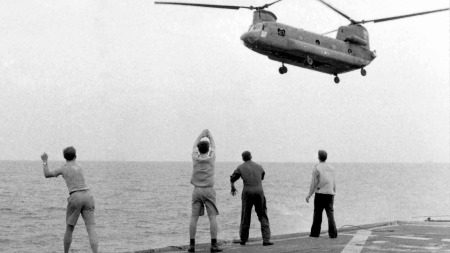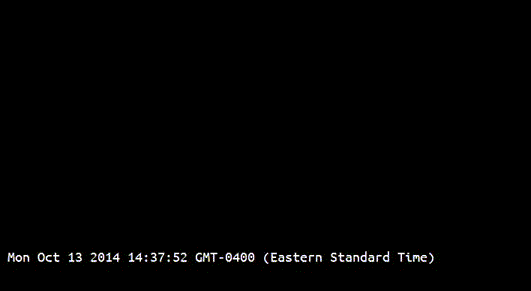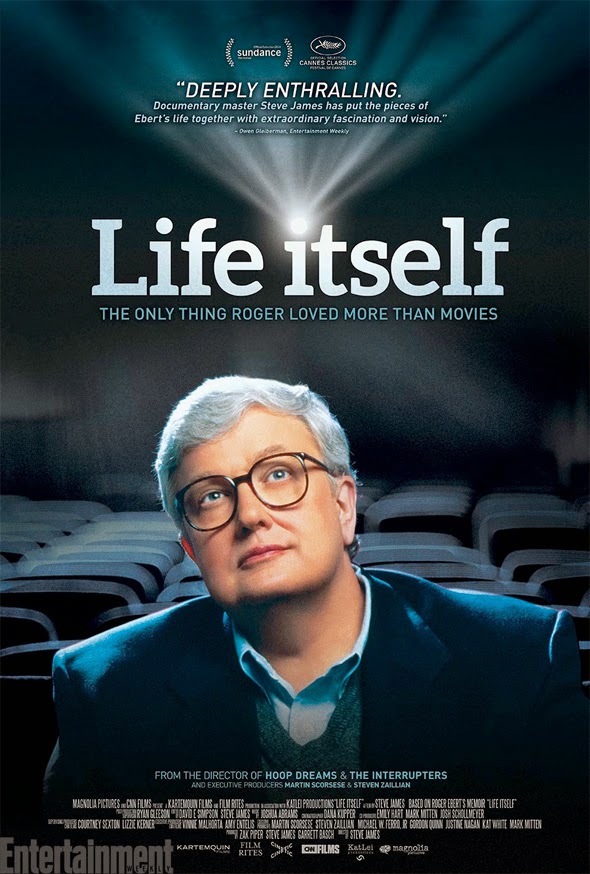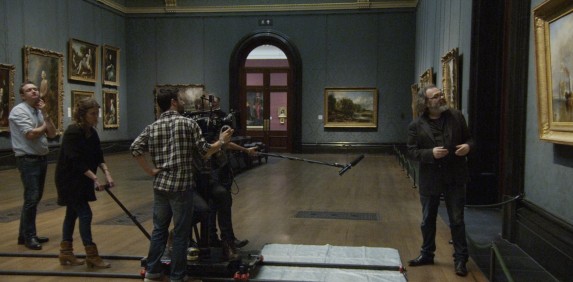Welcome back to The Film Experience's look at this year's Oscar documentary nominees. Glenn Dunks is again joined by Daniel Walber of Nonfics in this second part looking at the once maligned and controversy-filled Best Documentary Feature category. If you missed part one then go read that first - our thoughts on Wim Wenders' The Salt of the Earth were not echoed by you, the readers, but that's what makes this all so fun. If you're a fan, check out discussion from last year about the 1989 winner, Common Threads.

Daniel: (cont'd) The way [Virunga director Orlando von Einsiedel] orchestrates it all, particularly in the thrilling climax, is what sets it apart. In a way that makes it not unlike Last Days in Vietnam (Glenn's review). Both films take a single sequence of events, in that case the 1975 evacuation of Saigon, and tell its story with several different perspectives. I’m not sure the strategy works quite as well for Last Days in Vietnam, which is also the only nominee this year made up primarily of archival footage. Do you think that has something to do with it?
Archival power, Roger Ebert and our own ballots after the jump
Glenn: Last Days in Vietnam may be a film made primarily out of archival footage, but what archival footage! I remember seeing this in Sundance and being swept up in the story as it gets told from its multiple viewpoints (soldiers on the ground, nationals desperate to escape, the officials trying to get people out). It made me realize that for as common as Vietnam is as a subject of both narrative and documentary cinema, rarely has this particular part of the war been told so palpably. I had been predicting it as an Oscar nominee from the moment the end credits rolled. I sense I liked it a lot more than you.
Sure, Rory Kennedy’s film is the most traditional of the five nominees and it certainly doesn’t want for potentially exacerbating talking heads, but I enjoyed the detail with which it zoomed in on moments from the fall of Saigon both famous and otherwise. And with those who were directly involved in the events, too. I admired how it dynamically sought to present itself as a definitive document of sorts and I certainly think there’s a place for documentaries like that in a landscape that puts increasing importance on bold-faced, modern cinematic language whether it’s appropriate for the material or not.
Which actually leads very nicely into Laura Poitras’ Citizenfour (For Your Consideration / TFE podcast), which feels like a very comfortable blend of old-school observatory doc with flashy, new wave modernity. Is that a fair assessment?

Daniel: Sure, though I think that it’s flashier on paper than it is in practice. The excitement comes from those of us in the audience, bringing along our own sense of history. The footage of Poitras, Glenn Greenwald and Edward Snowden is a tremendously important document, and we all know that going in. Yet as a film, it’s less interested in the excitement of the leak than it is in the more prosaic details of paranoia – a conversation Greenwald and Snowden have about password protection, for example.
Poitras’s triumph comes from her total lack of contentment in simply laying out the story of Snowden’s whistleblowing and summarizing the information he brought to the world. The film is a portrait of a number of activists and journalists, all of whom have been profoundly affected by a life lived with the knowledge of government surveillance. It almost becomes a superhero movie, or at least a philosophically-minded portrait of lives apart. It’s immensely personal, including intimate moments of Snowden, Greenwald and Poitras herself, but it’s also very broadly symbolic. Its images of empty Utah, where the NSA is constructing its giant new data center, are unforgettable signs of a horrific potential 21st century.
It’s also the only film that has been a certainty in this category for months, and it’ll probably win. What do you think?
Glenn: Oh I agree entirely. Citizenfour is excellent and, much like Finding Vivian Maier, works most because of the way it unfolds organically for both filmmaker and viewer, as well as the unique insight it allows into the individuals themselves and the material they put out into the world (creative or departmental). It plays as a look into somebody's world that we otherwise would never be allowed and that extends into the wider discussion about why documentaries are so exciting at the moment. We are being given so much access to so many walks of life that it's truly mind-boggling. If Cititzenfour is to win, and I think that's a fair assumption, it'd be a very smart choice - it's hard to see Citizenfour not being the definitive documentary for the year.
 It's funny that you mention its inevitability as a nominee given the other doc that was widely expected was the Roger Ebert documentary Life Itself. I was no fan of the film as I have said on multiple occasions and I felt somewhat bad rooting against it so much when its intentions were so good. I just don't think it was particularly well-made. It's curious that the doc branch chose two films about photography and then, as they've done in recent years with Stories We Tell, left off the two documentaries about filmmaking (Jodorowsky's Dune being the other shortlisted title). Not sure what that says, but I think it's interesting.
It's funny that you mention its inevitability as a nominee given the other doc that was widely expected was the Roger Ebert documentary Life Itself. I was no fan of the film as I have said on multiple occasions and I felt somewhat bad rooting against it so much when its intentions were so good. I just don't think it was particularly well-made. It's curious that the doc branch chose two films about photography and then, as they've done in recent years with Stories We Tell, left off the two documentaries about filmmaking (Jodorowsky's Dune being the other shortlisted title). Not sure what that says, but I think it's interesting.
Daniel: I still haven’t seen Life Itself, so I’m not all that qualified to talk about its chances, but I do think the awkwardness of Steve James’s history with the Academy has more to do with film critic hype than anything else. He’s a great director, one of the best, but so are Frederick Wiseman, Werner Herzog, Ken Burns and the Maysles brothers. Each of these filmmakers has been nominated just once in their entire careers, James included (admittedly for Best Editing). Yet it seems that every time James makes a movie, film critics get really excited and decide that it’s a frontrunner. This stuff is always trickier than it seems.
My personal ballot would be:
Citizenfour
The Overnighters
The Last of the Unjust
National Gallery
What Now? Remind Me
Glenn: That's an incredibly solid list. When it came to thinking of mine I cheated and included a couple of titles that weren't even released in America. They were so good, I couldn't help myself and it's highly unlikely they will ever actually be released here so maybe the recommendation can help readers seek them out.
My personal ballot:
Aim High in Creation
Citizenfour
Last Days in Vietnam
My Prairie Home
National Gallery


We hope you enjoyed this critical look inside the documentary category for 2014. We're proud of our doc coverage here at The Film Experience so let us know more about your favorite titles of the year and any agreements or grievances you had. It's good seeing people get passionate about non-fiction so we'd love to hear from you in the comments.